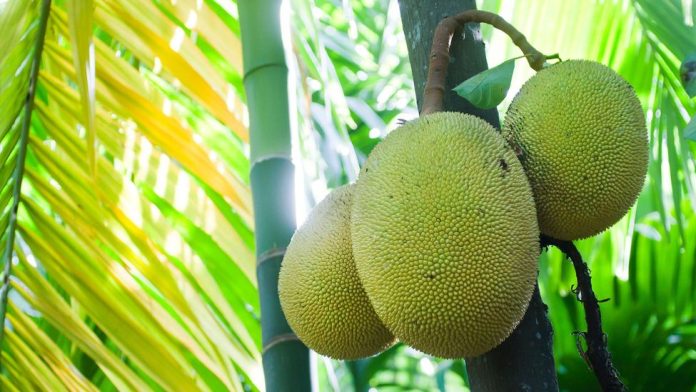It may look like something from another planet, and smell like “rotting onions,” but the jackfruit may one day save millions of people from starving thanks to the fact that one fruit can weigh between 10-100 pounds and yield hundreds of the small, yellow, bulbs, filled with hundreds of seeds rich in protein, potassium, calcium, and iron. The flesh is also a good source of vitamin C. In fact, it is the largest tree borne fruit on earth. It is also said that that “1/5 of a pound of the fruit has approximately 95 calories.”
Varieties are distinguished depending on different characteristics of the fruit’s flesh, which is generally starchy and fibrous, with flavors described as “comparable to a combination of apple, pineapple, mango, and banana. “ Others are also said to taste like “pulled pork.”
In fact, “a single fruit could feed your family for an entire meal, “ Nyree Zerega a plant biologist at the Chicago Botanic Garden told the Business Insider during a recent interview. Zerega has been studying the genetic diversity of jackfruit trees in Bangladesh, where it is commonly used in everything from curry to ice-cream, juice to baking flour and even chips, and much, much more. “That’s why the jackfruit tree (which can grow up to 200 fruits over the two harvest seasons it typically has each year is so important.”
While it is avoided in India, jackfruit is popular in other parts of Southeast Asia, where other parts of the trees produce a sticky latex for glue, and orange dye made from the bark has been traditionally used for making Buddhist monk’s robes. In addition, the leaves provide nutritious fodder for farm animals.
*Note: Although hard to come by in America, it can be found in various Asian markets here, including New York City’s Chinatown.








